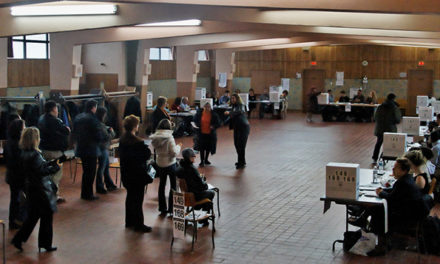In the last few months, India has been troubled by political polarization and violence. Article 370 of the Indian constitution, which grants legislative autonomy to the state of Kashmir, was repealed. The government of India suspended internet services in Kashmir, effectively leaving it in the dark. The government passed the Citizenship Amendment Act (CAA), which unfairly targets persecuted Muslims and refugees while also complicating the existing resource burden on indigenous Northeastern Indian communities. The unrelenting students of India continue to die while protesting those issues, as the police use pepper spray and beat them. Although India has been embroiled in serious human rights abuses the past couple of months, Emory’s chapter of the Indian Cultural Exchange (ICE) has remained largely silent on these issues until just a few weeks ago.
ICE’s radio silence is concerning because it’s indicative of their priorities, or lack thereof. Emory’s ICE chapter has a real opportunity to impact the students of Emory positively and to make each unique voice heard. Students at this university, given its large Indian population, need to see ICE show more initiative in addressing India’s political issues as advocates of the nation’s welfare on Emory’s campus. Taking a stand against injustice is important, and it sets a precedent for the rest of the student body.
The organization posted a statement on its Facebook page on Jan. 6, 2020, only after weeks of inaction and silence. The response was not comprehensive and failed to mention both the trouble in Kashmir and the student deaths in the CAA protests. Though they intend to follow up with a meeting, the least students could have expected on paper was a basic overview of some of India’s most pressing and violent issues.
India’s recent events have amassed global critique, and Indians all over the globe are starting to speak up. Educated, prominent individuals and groups such as Microsoft CEO Satya Nadella, ex-RBI governor Raghuram Rajan and the United Nations have spoken out against what’s happening. India’s democratic fabric is under threat, and it needs its people to be outraged, to be informed and to stand up for what they believe in. Several cultural groups from U.S universities have, in addition to organizing events and protest, signed and sent a statement to U.S Congress, condemning several new developments in India. ICE, as an organization that aims to represent Indians on campus, should be at the helm of our local conversation, leading students to advocate or creating platforms instead of doing the bare minimum required to stay afloat.
College students all across the world, including those at Harvard University (Mass.), Massachusetts Institute of Technology, New York University and Yale University (Conn.), have taken a stand long before Emory’s ICE by having these discussions and doing their part to enable change through protests, open letters and by creating avenues for discussion. Emory’s ICE has been lagging behind in not only their response time, but in the level of action they have decided to take. Organizations at some of those other schools have started sister protests in solidarity with students experiencing police violence in India, but ICE has settled for a mere Q&A that, given the Facebook statement, seems incomprehensive to the nuances of the CAA and its effect on various ethnic and religious minority groups in and outside of India. The timing and the type of action that ICE has decided to take on these issues is, to say the least, disappointing.
In the month that ICE has stayed silent, Muslims all over India have stated that they feel alienated and unwelcome under India’s Bharatiya Janata Party’s (BJP) administration and there have been several claims of caste and religion based violence. If ICE charges itself with making students feel connected to their culture, they have a responsibility to affirm a sense of belonging for Muslim students and others who have become targets of government abuse and violence abroad.
Undoubtedly, many of ICE’s members are well-meaning, inclusive and amazingly energetic. I hope to see ICE work actively toward making a positive impact in the future, especially because the audience to whom they cater cares deeply about social issues in their country and want to see their culture be represented holistically. By waiting to respond to the dangerous reality that many students with Indian ties face, the organization risks alienating students by failing to challenge the gradual erosion of freedom in India. Their silence shows the Indian community where they stand, and it truly is deafening.
Rhea Gupta (23C) is from Mumbai, India.
Rhea Gupta (23C) is from Mumbai, India, majoring in Economics and English. Outside of the Wheel, she is the Chief Operating Officer and Vice President of the Emory Impact Investing Group and serves as a third-year College Council legislator. She has previously been the Vice President of Partnerships of the Undergraduate Impact Investing Society, an editor at the Emory Wheel and has served on the executive board of Emory’s South Asian Women’s Collective. She spends her free time watching stand up comedy, reading fiction and exploring the historic parts of Atlanta. Contact Gupta at rhea.gupta@emory.edu.




